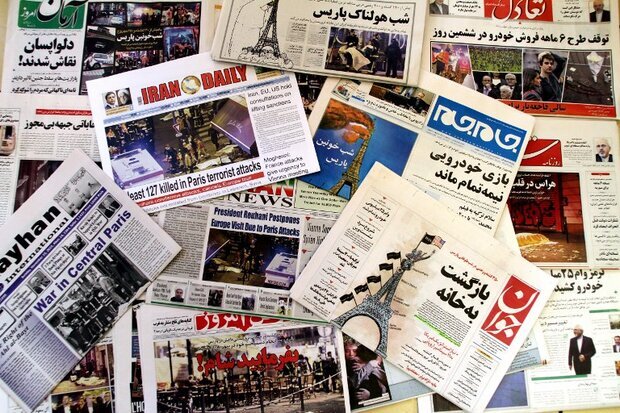In its editorial, Ham Mihan wrote: Foreigners just seek to secure their own interests and not to administer justice or free other nations. Sometimes their interests are met by supporting the opponents of a system, and sometimes they achieve their interests by supporting that system and ignoring the opponents, and this feature disrupts the validity of the positions of critical or opposition forces.
The events of the past days regarding the Mojahedin Khalq Organization (MKO) and other forces opposed to the Iranian government, as well as radical critics, must have proved that these forces are not the ones who have used those countries for the benefit of their goals, but rather those countries have used these forces to achieve their goals and reach a compromise with Tehran. The independent political force always supports improvement of foreign relations and establishment of peace because it does not consider the interest of its people in tensions and has no interest in interference of foreigners in Iran's internal affairs. There should be no doubt that the dependence of political forces on external variables has no result but betrayal, betrayal of the ideals of the people, the country and even their supporters.
Shargh: Foreign minister's visit to the land of mediators
In an analysis, Shargh discussed Amir Abdollahian's trip to Oman and Qatar. It wrote: Speculations about the outcome of this regional trip by the Minister of Foreign Affairs of our country show that the continuation of indirect negotiations with the United States of America to release blocked funds and to exchange prisoners are at the top of diplomatic goals. It is possible and it is even predicted that we will see progress in this direction in the not-too-distant future. However, we have to be patient in regard to a release of Iran's blocked money in South Korea or making possible agreements in nuclear negotiations. We have seen these sudden changes many times.
Iran: Failure of the mission to topple the Islamic Republic system
In an analysis, the Iran newspaper discussed the attack by Albanian police on the headquarters of the hypocrite group (MKO) and the cancellation of the annual meeting of this terrorist group in France. It said: The important signs of the new scene indicate the failure of the sabotage mission and collapse of the Islamic Republic system. Some months ago, Europe and the United States made a mistake by shunning diplomacy with Iran. They were pleased with the movements of the anti-Iranian groups. This mistake was enough for the Islamic Republic to seek new large coalitions with a special focus on the Middle East and greater Asia, which could cause even more concern for the Western bloc. What the West did in the recent confrontation with the MKO was a sign of their understanding of the new developments, which showed that in regard to Iran they have no choice but to turn to the policy of lessening tensions and accepting the undeniable contribution of Iran to power equation in the region and the world at large.
Sobh-e-No: Iran-US negotiations on the path of understanding
Sobh-e-No devoted its editorial to the Iranian foreign minister's visit to Muscat and Doha and wrote: In their recent negotiations, Iran and the United States are finalizing negotiations on "Iran's blocked assets" in other countries in order to agree on an action plan and a timetable. Therefore, "technical negotiations" are still ongoing, and the role of Qatar and Oman is prominent in this regard because it is said that the assets are supposed to be transferred to the banks of these two countries. However, there has been no other news about the nuclear negotiations except the rumors of an interim agreement. It seems that Iran and America have reached an understanding on at least some "mutual conditions" and maybe in the new round of negotiations, we will see "understanding" instead of "agreement" because any agreement different from the 2015 agreement means the end of the JCPOA and the parties do not want this to happen. On the other hand, it is not possible to return to those conditions now. In the JCPOA, the nuclear infrastructure underwent changes. Therefore, it seems that the parties reached an understanding in an "unwritten agreement" on taking some mutual actions. It is an understanding that includes both Iran's economic benefits and removes the West's concerns about Iran's achievements in nuclear technology.


No comments:
Post a Comment